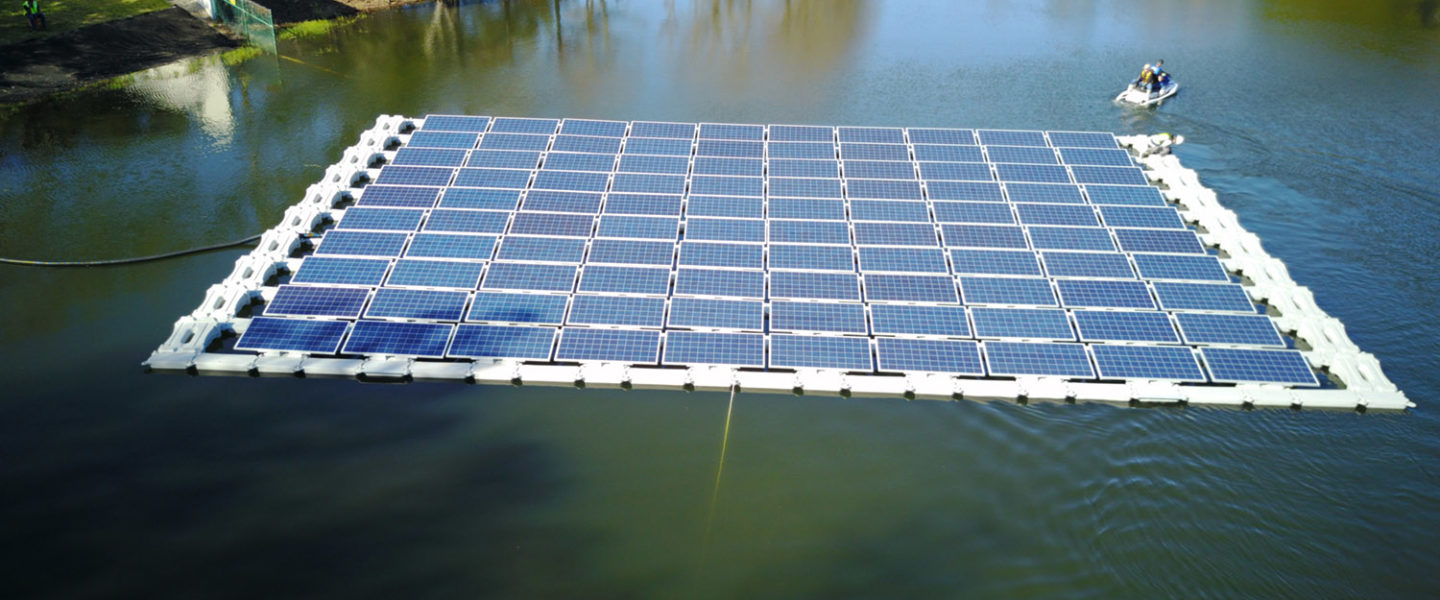
Watch the recorded public webinar:
Floating solar, also known as floating photovoltaic (FPV) systems, are electricity-generating solar panels affixed atop buoyant platforms. Floating solar is an emerging energy market.
Although the first FPV system came online in 2007 at the Far Niente Winery in California¹, FPV has grown predominately outside of the United States. Japan, for instance, has the majority of the FPV installed capacity, including 70 of the largest systems in the world.¹ The commercial FPV market is growing significantly globally, but there’s limited research about it.
Limited land availability, reduced site-preparation costs, and the opportunity to utilize man-made bodies of water, such as reservoirs, retention ponds and wastewater storage ponds, are among the reasons for FPV popularity.
Research Focus
This project will monitor the performance, durability, water-quality impacts and biodiversity interactions of four existing floating solar sites across diverse climatic regions.
Impact on Water Ecosystems
The impact of floating solar systems on water ecosystems is a primary concern. Harmful algae growth, a nutrient pollutant, is a costly nuisance for water bodies. It clogs pumps, blocks filters, and produces odors. It is also linked to severe illness and death in animals and humans. Floating solar systems may significantly reduce light exposure and lower water temperatures, thereby minimizing algae growth. The degree to which FPV may mitigate or eliminate harmful algae blooms is not known, though.
Floating Solar Efficiency
Photovoltaics perform more efficiently in cooler temperatures. For this reason, it is speculated that photovoltaic systems floating over water may have lower cell temperatures and perform better than land-based systems. A combination of field testing and computational activities will assess the potential efficiency benefits of the floating solar.
Climate Regions
Researchers will leverage four existing floating photovoltaic system installations within three Köppean climate regions:
- Humid/subtropical climate (Orlando, Fla.)
- Subarctic/boreal climate (Walden, Colo.)
- Warm summer/Mediterranean climate (Oakville and Windsor, Calif.)
Researchers will monitor land-based systems in those same regions for comparison.
Partners
- University of Central Florida’s FSEC Energy Research Center (lead)
- University of California Davis
- Orlando Utilities Commission
- City of Orlando
- National Renewable Energy Laboratory
- Ciel & Terre
Years of Research: 2020 – Present
Sponsored by: U.S. Department of Energy
